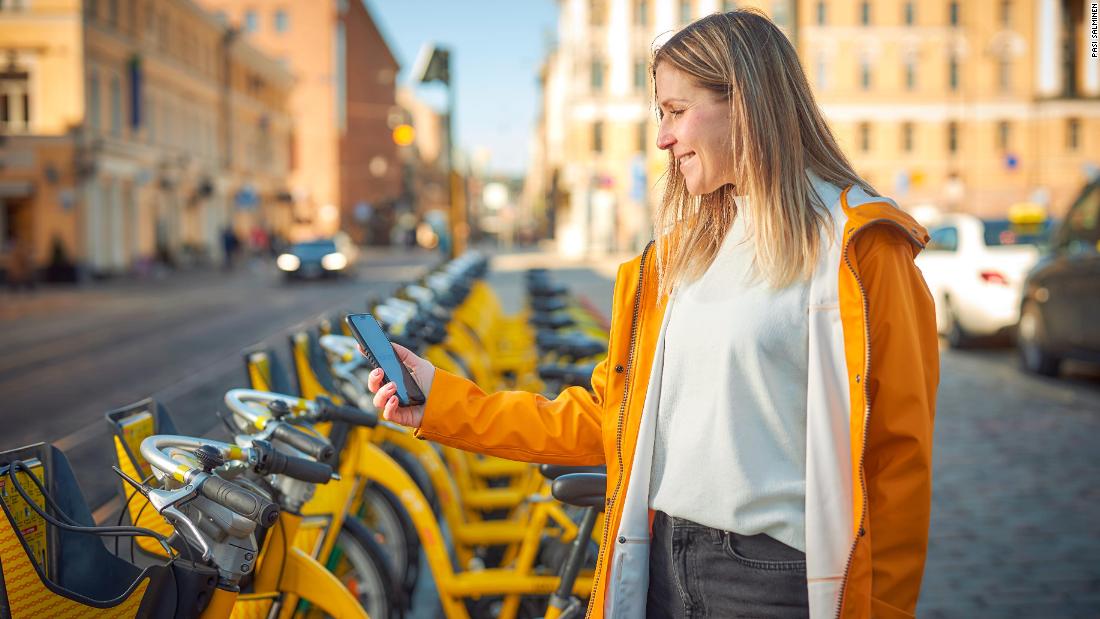These apps are trying to put car dealers out of business

It can be inconvenient and time consuming. Which is why Finnish startup MaaS Global decided to aggregate all these services into one app called Whim. Available in more than 10 cities across Europe and Asia, users can access taxis, buses, bikes, e-scooters and rental cars.
“Whim’s sole purpose is to compete against car ownership,” CEO Sampo Hietanen tells CNN Business.
He admits this isn’t an easy task. To succeed Whim has to be more convenient and cheaper than owning a car. “The car represents freedom of mobility,” says Hietanen — even if a city dweller barely uses it, they still keep it parked outside as a “freedom insurance.”
To compete, Whim offers rental cars and taxis, but Hietanen says that users tend to opt for public transport or micromobility (shared lightweight vehicles such as bikes or e-scooters).
Users can choose between multiple tiers of service, including a pay-as-you-go option and a 30-day season ticket, which costs €62 ($73) in Helsinki — where the app is most established — for unlimited public transport and short taxi rides. The ticket also offers car rental from €55 ($65) per day.
While Helsinki has well-developed alternatives to driving, that’s not true of everywhere. If a city “does not have a wide public transport system or a lot of rental cars or taxis in place” then it will be difficult to convince people to give up their cars, says Maria Kamargianni, associate professor of transport and energy at University College London.
MaaS movement
But the business has been hit by the Covid-19 pandemic, says Hietanen; with fewer people traveling, revenues are lower, stalling the company’s expansion into other cities.
“We’ve known from the beginning that the investment needed to create this would be substantial,” he says, adding that the company has recently secured further investment.
Greener travel
there. A recent report from the International Transport Forum (ITF) says that mobility services will be vital in meeting the needs of a growing world population and fast-paced urbanization. But for growth to happen, “people must choose it over other travel options” such as private motor vehicles.
This is already happening, says Hietanen. According to a company survey carried out in Helsinki, 12% of its users said that Whim had prompted them to give up their cars. “People want the more sustainable solution,” he says, “but they still want the freedom of being able to go anywhere, anytime.”







